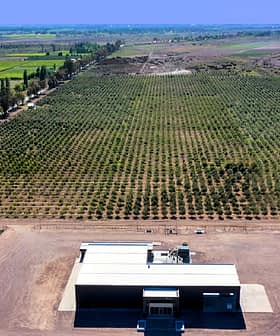Potential of Major Changes in Argentina Provide Hope for Producers, Exporters
The election of a conservative government has provided some producers with hope that Argentina’s economic situation – along with their own – will begin to improve.
 President Javier Milei of Argentina (AP)
President Javier Milei of Argentina (AP) Since taking office in December, President Javier Milei has wasted no time acting on his promises to foment a radical change in Argentina.
Within weeks, he had issued a range of executive decrees and sent an omnibus bill to Congress. The original proposal changed more than 300 laws, with the goals of deregulating labor laws, privatizing state-run companies and placing restrictions on protests.
Our production costs will become much more expensive, and the situation may worsen in the medium term. However, Argentina needed a change.
While the decrees come into force – resulting in a rapid devaluation in the currency as the Argentine peso fell from its artificially pegged value closer to the actual market value – the omnibus bill failed to pass an initial vote in Congress, and negotiations are ongoing.
Olive oil producers and exporters interviewed by Olive Oil Times are cautiously optimistic – some are even bullish – that President Milei’s reforms will help the sector. However, significant challenges are expected in the short term.
See Also:Agricultural Groups Call on Spanish Government to Step Up Climate Change Response“The problem continues to be inflation, the tax burden and non-wage labor laws,” said Mario Bustos Carro, the general manager of the Chamber of Foreign Commerce of Cuyo. “But there is great confidence in the government of President Milei. His laws and decrees need to be approved to be able to say that we can begin to move forward.”
He cited the Milei government’s proposed reforms to non-wage labor laws and to reduce public spending as policies that would help the olive oil sector. While tax reforms were dropped from the original legislation, Bustos Carro added that they would have helped make olive oil exports more competitive.
Guillermo Kemp, the commercial director of Solfrut and a board member of the Argentine Olive Federation (AOF), told Olive Oil Times that producers and exporters need to wait and see what changes are made to the omnibus bill in Congress.
While the government has proposed a 15 percent tax on some agricultural exports to help close a significant fiscal deficit, olive oil was not included.
Kemp said the omission would continue to encourage producers to export, especially as the gap between the official peso‑U.S. dollar exchange rate and the unofficial exchange rate, known as the Blue dollar, has fallen from more than 120 percent to around 20 percent.
The discrepancy between the two was a significant challenge for exporters, who had to repatriate foreign sales made in U.S. dollars and Euros at the much lower official exchange rate while purchasing many production inputs – often in dollars – at the higher Blue dollar exchange rate.
“This markedly improves the situation for exporters,” Julián Clusellas, president of Valle de la Puerta, a significant exporter, and an AOF board member, told Olive Oil Times.
He agreed that no new taxes would help the sector. However, other cost-cutting measures will raise input costs for growers and millers.
Clusellas warned that production costs would double after the government removed electricity subsidies, resulting in a price rise of up to 150 percent, and will be felt most acutely by farmers dependent on irrigation.
“Electricity costs will become much more expensive in Argentina once the government removes all the subsidies,” he said. “As a result, our production costs will become much more expensive, and the situation may worsen in the medium term. However, Argentina needed a change, and I hope they improve the country.”
While it is still too early to tell how the decrees and proposed legislation will work to tame inflation – which reached a new high of 254 percent year-on-year in January – and set the Argentine economy on the road to recovery, Clusellas is optimistic.
He agreed with Bustos Carro that changing employment laws would make it easier for managers to hire and fire workers. Under the current system, businesses usually must pay generous severance packages, limiting their ability to hire a replacement.
Meanwhile, the privatization of the state-owned railway company could open the door for much-needed investment to improve logistics and transport efficiency in the country – something the largest olive oil producers have long advocated.
“There is a lot of work to do on railroad infrastructure to lower transport costs to the port,” Clusellas said.
With plans to build a bi-oceanic corridor connecting Argentina with major Chilean ports stalled indefinitely, virtually all of Argentina’s olive oil exports – estimated by the International Olive Council at 26,500 tons in the 2022/23 crop year – travel roughly 1,200 kilometers from the northwest and west of the country by road or rail to the ports in Buenos Aires.
Supporters of the corridor believed it would facilitate Argentine olive oil exports to lucrative East Asian markets, such as China, Japan and South Korea. Most exports are destined for Brazil, Europe and the United States.
While there is optimism about the sector’s prospects, no one denies that plenty of work still needs to be done to improve the economics for olive growers and producers.
“Much more is needed, such as improvements to infrastructures – routes, ports, competitive means of transport – stimulation of regional economies and promotion of [Argentine extra virgin olive oil],” Kemp said.
“It won’t be easy,” Bustos Carro concluded.








